Print Marketing: 5 Low Cost Ways to Promote your Business
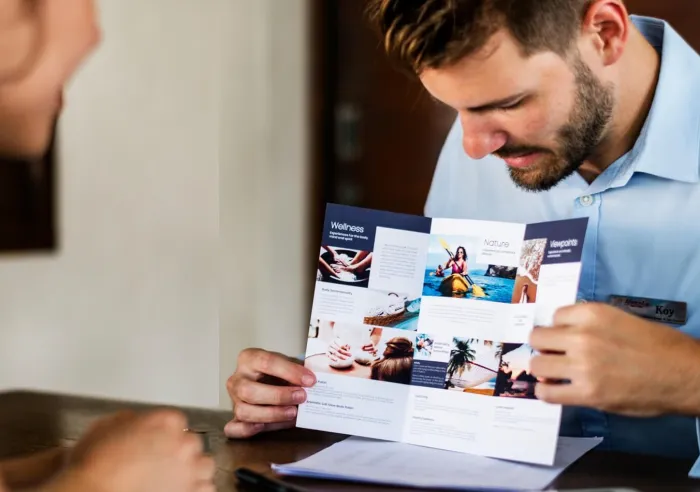
estimated reading time: 8 minutes
Print Marketing
Despite the business world's extensive use of digital
marketing, Print Marketing still remains an effective strategy for generating
new business.
One advantage of printed marketing pieces is that they exist
in physical form. Conversely, digital marketing messages only exist as fleeting
pixels on a screen. Hence, digital marketing is less impactful than a printed
marketing piece that can be held in one's hands. Because it gets more focused
attention, a printed message has a better chance of gaining trust and being remembered.
Another advantage of print marketing is that it can provide ongoing
exposure. Even though a digital marketing message can be sent very quickly and
efficiently, it can also be discarded very quickly and efficiently. It is easy
to delete or scroll past emails, tweets, and electronic ads without ever
reading them. On the other hand, printed pieces are real and tangible so they tend
to stay around longer and provide continued exposure to your brand.
Printing can enhance any Marketing Strategy
Whether a marketing strategy involves the use of print exclusively,
or as a supplement to digital marketing, printed materials are an effective and
time-tested way for businesses to promote their products and services.
Plus, in today's economic climate, there is a real need for cost-effective
marketing options. So below are five of the most budget-friendly options
available for print marketing. Despite
being very economical, all five of these options are quite effective at
influencing customers and gaining new business.
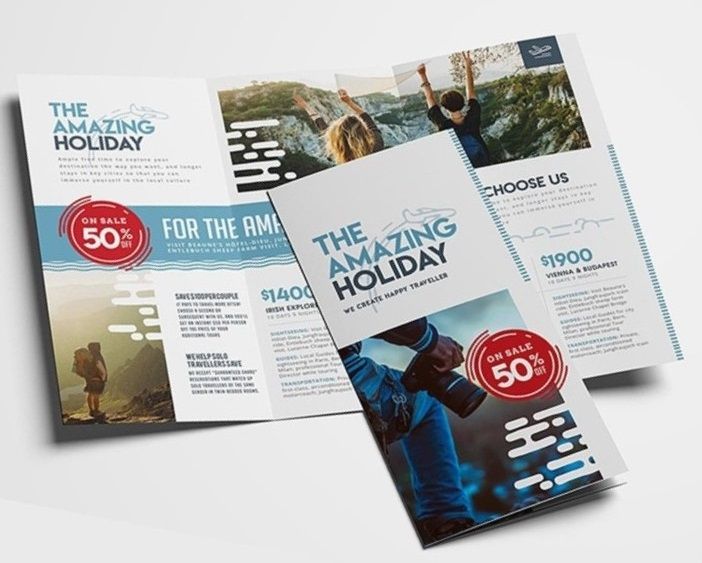
1. Tri-fold Brochures -
Brochures are a perfect way to promote your company as well
as the products and services you have to offer. When looking for a low cost but
professional brochure option, the Tri-Fold has everything you need. It offers plenty
of space to convey detailed information yet it folds neatly to a very compact
size.
The most popular size of tri-fold brochure is made from a
standard 11" x 8.5" sheet. The sheet is printed on both sides and then folded
into thirds. This provides six distinct panels for displaying text and images -
three panels on the front of the sheet and three panels on the back of the
sheet.
Since the panels of a tri-fold brochure divide the content
into distinct sections, the brochure exhibits a well-organized appearance. This
helps guide the reader through the content of the brochure in a logical
sequence.
Also, because tri-fold brochures have such a convenient
size, they are very easy to handle and distribute. Plus, they take up minimal
room on a counter or desk and fit perfectly into a standard #10 envelope for
mailing.
Tri-fold brochures offer one of the best values in print
marketing. Despite being constructed from a single sheet of paper, tri-fold
brochures provide a very practical format for displaying a great deal of
information.
2. Flyers -
Flyers are one of the most widely-recognized forms of print
marketing. The majority of flyers are created from a single sheet of 8.5" x 11"
paper. Most have printing on only one side to minimize the cost, but they can
also be printed on both sides.
A flyer provides a relatively straightforward way to deliver
a promotional message, as well as a way to create excitement around this message. For
example, flyers are often used to announce a special event such as a grand
opening, seasonal sale, or special discount. They can also be used to introduce
the latest offerings, such as a customer loyalty program or a new product or
service.
Whatever its intended purpose, a flyer should have a clean
layout with the main message as the focal point. Because a flyer is a single
sheet of unfolded paper, your message can be seen instantly. This is why flyers
are the ideal method for communicating a promotional message in a quick and
concise way.
Even though flyers are rather simple, this is what allows
them to be such versatile and cost-effective promotional tools. They can also
be distributed in a variety of ways, such as being handed to customers as they
enter a retail store, given out at a trade show or other venue, posted on
community bulletin boards, or stacked on a table or counter to be accessed by people passing by.
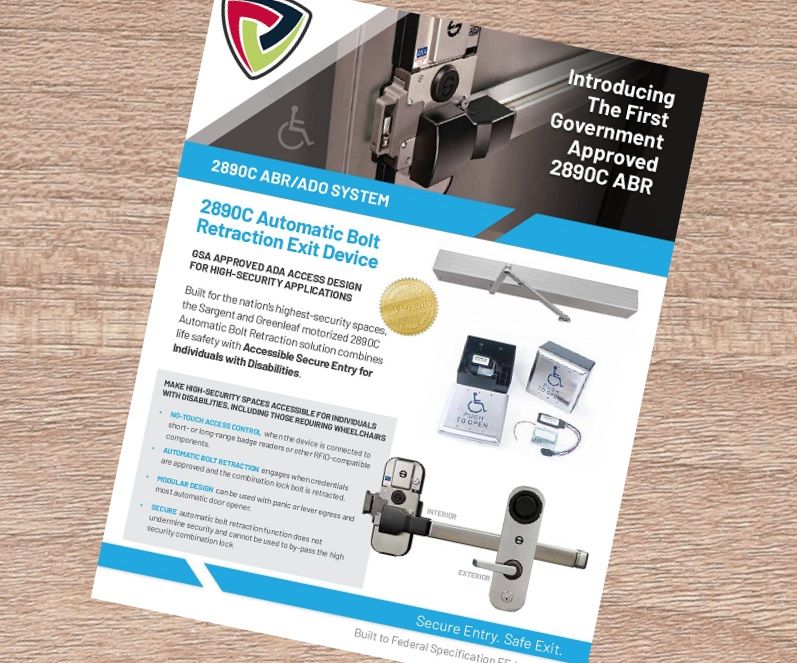
3. Sell Sheets -
A Sell Sheet is a printed sheet used as a compelling sales
aid for products and services. Like flyers, most sell sheets are made from 8.5"
x 11" paper with printing on one or both sides.
A sell sheet generally focuses on a single product or service,
explaining the key features and benefits in a clear and concise manner. In
addition to persuasive text, sell sheets include photos that
present the offerings in an appealing way. Also, sell sheets commonly include
informative diagrams, charts, studies, technical data or any other details
that will help to sell the product or service.
Basically, the goal of a sell sheet is to highlight the
advantages of your offerings to help streamline the sales process. Sell sheets
address just about any question a potential customer might have about a product
or service, while at the same time using subtle persuasion to inspire a
purchase.
Even though sell sheets can be printed for every product or
service a company offers, only the one that pertains directly to the customer's
interests is usually presented. This helps maintain focus on the offering best
suited for the customer's needs.
Like brochures and flyers, sell sheets are quite versatile
and can be used in conjunction with various marketing channels. For example,
sell sheets can be shared during sales presentations, given to interested
prospects at trade shows, included in direct mail campaigns, or displayed in
showrooms or retail locations.
4. Buck Slips -
A Buck Slip is like a miniature flyer. Whereas the majority
of flyers are the standard 8.5"x 11" size, a typical buck slip is just a third
of that size. As such, most buck slips measure around 8.5" x 3.5". Because of the smaller size, buck slips are
one of the absolute cheapest types of print marketing you will find.
Buck Slips, also known as Buck Inserts or Buck Sheets, don't
offer a lot of space to print on. But this can actually be a good thing because
it requires the promotional offer or marketing message to be very succinct and
to the point.
Like most promotional pieces, buck slips are printed in
color. They can also be printed on one side or both sides, but one-sided
printing is more common.
Just like a flyer, a buck slip is most often used to draw
attention to an upcoming event, special promotion, or a specific product or
service. Buck slips can also be designed
as a coupon to be redeemed for special savings on a future purchase.
Buck slips are popular in a retail setting, where they can
be given to a customer entering a store or at check-out. When used at
check-out, buck slips are often placed into a shopping bag with the purchase,
stapled to a customer's receipt, or just handed to the customer directly.
Many businesses, including banks, utility providers, and insurance
companies, use buck slips as a cheap way to include a message or reminder with
customer invoices or other correspondence sent through the mail. Because of
their size, buck slips fit easily into standard #10 business envelopes without needing
to be folded.
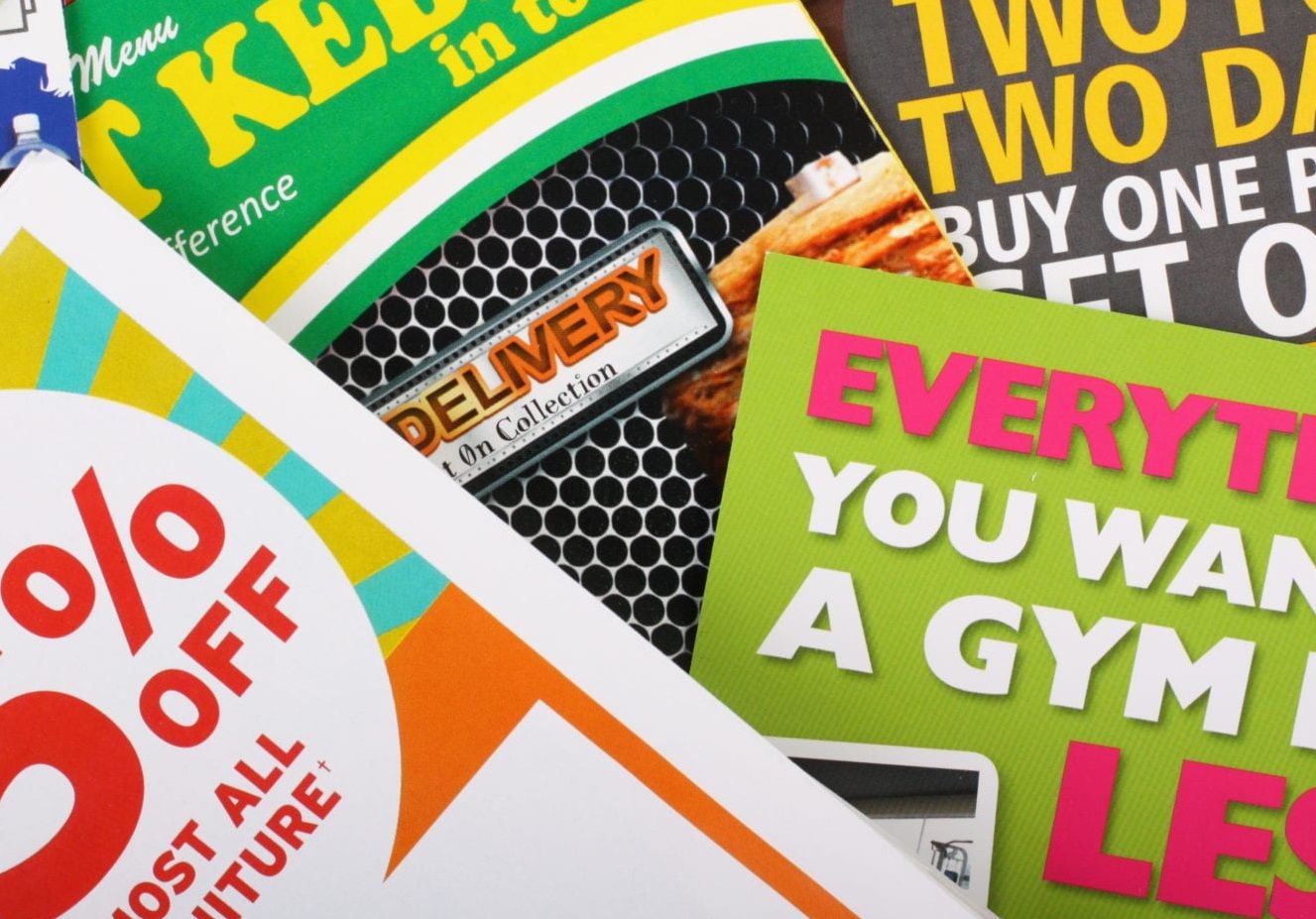
5. Postcards -
Postcards provide an inexpensive way to target new customers.
They are also a great way to keep in touch with existing customers. Postcards
can be made in a variety of sizes such as 4.25" x 6", 5" x
7", 6" x 9", 6" x 11", or 8.5" x 11". Printed
on heavy cardstock, postcards have the lowest postage rate of any direct mail
option.
One of the advantages of postcards is that they do not
require an envelope. When the intended recipient picks up their mail, your promotional
offer will be seen instantly. Also, because the recipient will be holding the
postcard in their hand, it increases the odds that your marketing message will
be read and acted upon.
Postcards can be broadly dispersed to everyone that resides
within a specific community or to groups of people that share other demographic
traits. Postcards can also be used to target prospects individually. When
targeting specific individuals, postcards can be personalized to match the
interests of the recipient using Variable Data Printing.
Another advantage of custom-printed postcards is that they
can be used for a wide range of marketing purposes. For example, postcards can promote
a grand opening or an upcoming sale, announce a special offer, introduce new
products or services, invite people to an event, or direct people to a website.
Postcards can also be designed to act as a discount coupon, contest entry, or
admission ticket.
Unlike handing someone a flyer or brochure, a postcard
recipient doesn't have to be standing right in front of you to receive your
marketing message. Postcards allow you to share your marketing message with people
wherever they happen to be, thus enabling you to easily and affordably expand
the reach of your print marketing campaign.
Necessary Components of Print Marketing
A print marketing campaign can be as creative as your
imagination will allow, so there aren't many restrictions when it comes to the
theme or design. However, to be
effective, all promotional pieces should contain the following basic elements….
- Attention-grabbing layout - the design should be bold but not cluttered
- Compelling headings and text - these should be descriptive but concise
- Clear statements about what you are offering - be sure to include the benefits
- Clear call to action (CTA) - what do you want the potential customer to do?
- Contact information - the more ways to contact you, the better
Color Vision is ready to assist with your Promotional Printing needs
If you are looking for custom-printed brochures, flyers,
postcards or any other marketing pieces, be sure to get in touch with Color
Vision. We built our strong reputation by offering quality printing at
affordable prices!
We offer both offset and digital printing services, so we
can assist with just about any type of printing need you may have. If you have
an upcoming print project and would like a quote, just fill out our easy Quote
Request form to send us your specifications.
Or, if you prefer to discuss your project by
phone, we can be reached at 800-543-6299. As always, we look forward to
assisting with your next print project!
Related Articles
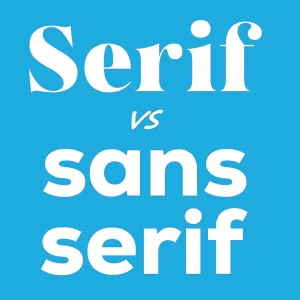
Serif vs Sans Serif Fonts: Which to use for a Print Project?
Read This Article

7 Interesting Facts you might not know about Offset Printing
Read This Article
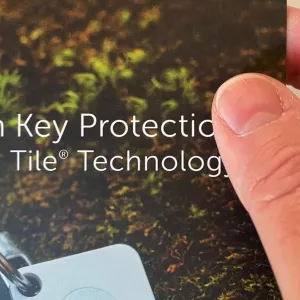
Print Marketing: Exploring the Allure of a Soft Touch Finish
Read This Article
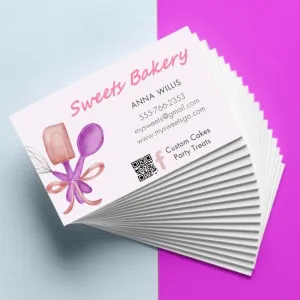
Business Card Printing: 5 Common Mistakes to Avoid
Read This Article